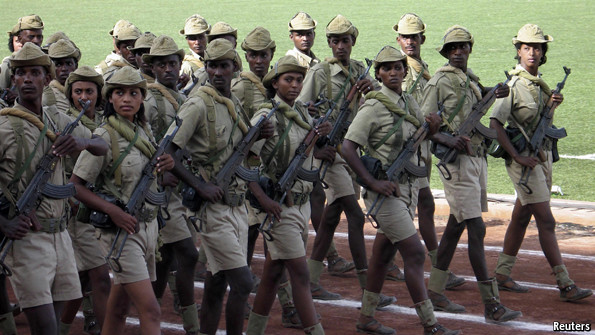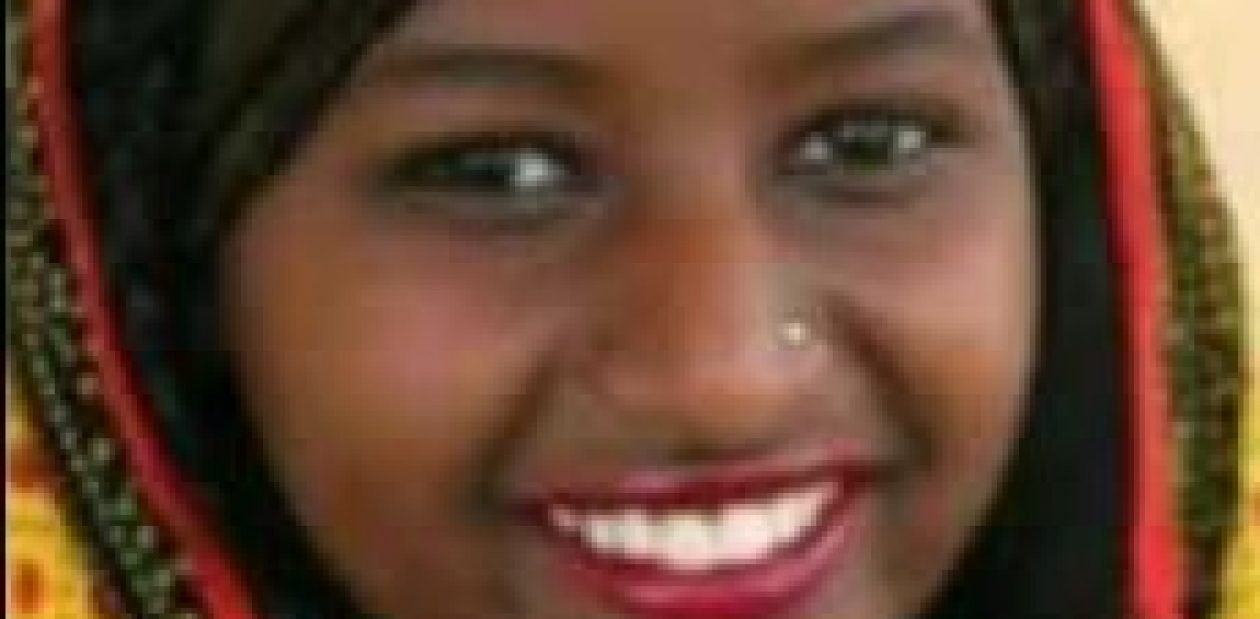WHEN Isaias Afewerki, Eritrea’s president, introduced compulsory military service in 1995, he said it would be good for the emerging nation. Conscription was supposed to create a disciplined, hard-working generation, strengthen the army and instill national pride. Nearly 20 years on, new research reveals that thousands of Eritreans flee their country each year primarily to avoid the draft, which they liken to slavery.
 National service requirements are harsh. Everyone under the age of 50 is enlisted for an indefinite period. Around one in 20 Eritreans currently live in vast barracks in the desert. They work on reconstruction projects, such as road building, and earn no more than $30 a month. They cannot go to university or get a formal job unless they have been officially released from military service. Since conscription became open-ended in 1998, release can depend on the arbitrary whim of a commander, and usually takes years.
National service requirements are harsh. Everyone under the age of 50 is enlisted for an indefinite period. Around one in 20 Eritreans currently live in vast barracks in the desert. They work on reconstruction projects, such as road building, and earn no more than $30 a month. They cannot go to university or get a formal job unless they have been officially released from military service. Since conscription became open-ended in 1998, release can depend on the arbitrary whim of a commander, and usually takes years.
In the first study into the impact of national service in Eritrea, Professor Gaim Kibreab, of London South Bank University, interviewed 215 former conscripts. They served an average of six and a half years, although some were in uniform for more than twice as long, before escaping abroad. “The government has held the youth hostage,” said one. “You cannot reconstruct a country on forced labour.” Others described “cruel and corrupt” camp commanders who “demand sexual favours” and threaten to kill conscripts who do not follow orders.
Conscription also undermines the fragile economy. Around 80% of the population are subsistence farmers but so many are absent that harvests routinely fail to meet the nation’s food needs. Some interviewees had seven siblings in the army. “My parents have suffered from poverty and depression as all of us were in national service,” said one. Labour shortages have increased the price of manufactured goods, making them among the most expensive in Africa. Resources are routinely diverted to the military.
Unwanted pregnancies among single women, once a taboo, have increased as mothers are usually excused from the draft. Eritreans cannot leave the country without government permission. The United Nations High Commissioner for Refugees says around 2,000 escape illegally every month via Sudan or Ethiopia.

Dissent is outlawed and elections are on hold. Last month, the United Nations Human Rights Council reported that basic freedoms were being repressed in the country and condemned the use of torture, disappearances and arbitrary detention. Mr Afewerki argues his harsh regime is necessary while Eritrea faces a security threat from neighbouring Ethiopia. A border dispute between the two countries is unresolved.
Eritrea’s army is now one of the largest in Africa but it may be the least motivated. “The hearts and minds of the conscripts are elsewhere, not in Eritrea,” said one former soldier. “A large majority spend their time planning to escape, and daydreaming. A defence force cannot be built by daydreamers.”
National service in Eritrea: Miserable and useless | The Economist.
